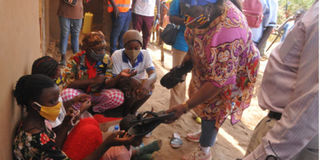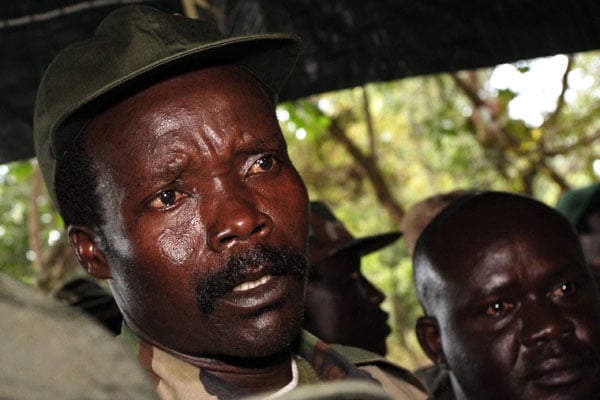Prime
We are starving, refugees in Nakivale tell UN officials

UN Resident Coordinator Rosa Malango (right) admires shoes made by refugees at Nakivale refugee camp in Isingiro District at the weekend. PHOTO/RAJAB MUKOMBOZI
Refugees in Nakivale settlement in Isingiro have said they are nearly starving because the money they are given to buy food is insufficient.
They were on Friday and Saturday meeting a team led by the UN Resident Coordinator for Uganda, Ms Rosa Malango.
The refugees told the team that the money for food they receive per month was reduced starting March.
“Previously, we were getting Shs31,000 per head but it was reduced to Shs22,000 beginning March. This money is too little to survive on, most families now have a single meal,” Mr Jackson Byamungu, a refugee, said.
Mr Henry Mfitumukiza, another refugee, said apart from slashing the money for food, the coming in of more refugees has left them with no land for cultivation.
“We used to have small pieces of land where we would cultivate and get supplementary food but the land has been allocated to new refugee arrivals and we now depend on only this little cash,” Mr Mfitumukiza explained.
The Refugee Desk Officer for Mbarara, Ms Polyne Abina, said by close of last month, the settlement had a total of 132,000 refugees. She added that
reduction of money for food has been brought by increase in the number of refugees.“The refugees are increasing in this settlement but the land size is not. It’s the same land that was designated in the 1950s. As we get more refugees, the land available keeps decreasing and this has affected livelihoods because previously they could use the land for agriculture to supplement what is given to them,” Ms Abina said.
Ms Malango told the refugees that as of now, they have no immediate solution regarding cash reductions because countries that were giving them humanitarian support have been adversely affected by Covid -19 and have instead diverted the support to their own citizens.
Malango’s advice
She added: “Covid is here for a long time; not three, five years. Therefore, we need to think and work together to improve quality of life with limited or no humanitarian aid. This may include going into agriculture, business and accessing microfinance help. We can also work with the government to see livelihood improvement projects extended to refugees.” Ms Malango, who visited several youth projects in the camp, promised to link them to the outside world. She also visited UN supported ventures outside the camp being undertaken under Youth Go Green project such as agribusiness at Bishop Stuart University.




